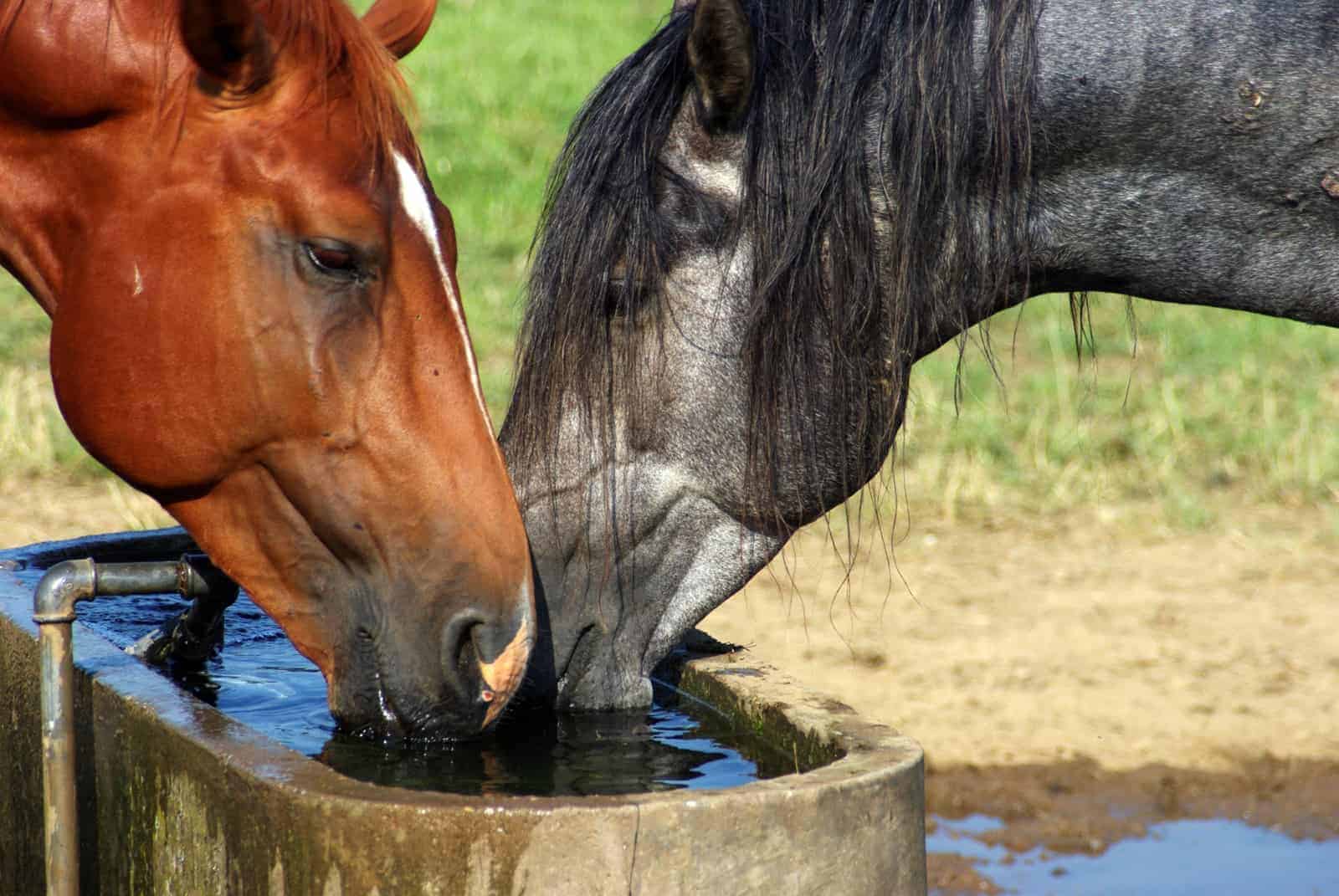Do Fish Help Keep Horse Water Tanks Clean?
- Posted by Clair Thunes, PhD

Q.I recently purchased a farm with large stock tanks in the pastures. Right now, they’re pretty gross and need a good cleaning. I’ve heard many people put fish in their water troughs to help prevent algae build-up. I’m considering doing this; however, a friend said doesn’t because fish feces negatively affect water quality. Is this true? Or do fish really help keep troughs clean?
—Via e-mail
A.In certain locations, adding fish to troughs is very popular due to the anecdotal belief that they help keep water tanks cleaner for longer. Additionally, some owners add fish as a way to reduce mosquito larvae that might be present in water—especially in larger troughs that have less surface movement
Create a free account with TheHorse.com to view this content.
TheHorse.com is home to thousands of free articles about horse health care. In order to access some of our exclusive free content, you must be signed into TheHorse.com.
Start your free account today!
Already have an account?
and continue reading.

Written by:
Clair Thunes, PhD
Related Articles
Stay on top of the most recent Horse Health news with













3 Responses
At our barn the metal water tanks are fastened to the ground and can’t be emptied or lifted for cleaning. The overgrowth of algae has always concerned me. The best we can clean is to try to lift out and discard the algae. Is is ok to use fish in this situation?
I agree with Clissa. Also, I’ve seen that goldfish are omnivores; they eat tiny flies & daphne, & when they grow big – & my pet goldfish got to a hefty 7 ” in 3 years from dinky 1.5″ ones – they are liable to start eating each other if there isn’t enough space. As they don’t have teeth, it must be a horrible death…. I think they prefer meat or dried fish, as I’ve always had to clean the algae off the glass (or plastic) sides myself! I gave up keeping them as they grew so fast, & rehoming to a well-managed pond was not easy. Water quality falls quickly in hot weather, reducing oxygen, so they can suffocate if not carefully monitored, as well as swimming in their own pollution. Useful article though – I was curious about trough goldfish.
I’m in Australia. In the past I had gold fish called Comets in large holding tanks and concrete troughs. Tank sizes were around the 5000gal(22000lt) and troughs of about 100 gal (500lt).
Stocking rate was 1fish per 50-100gal. Comets will grow big in large volume of water.
It is important never to empty or even allow vessel (tank or trough) to get really low or the fish will die.
Dead fish pollute the water really badly! Much like dead birds do.
Stocking rate higher than nominated above will pollute the water also and eventually cause fish deaths.
Comets are omnivores so eat both algae and mosquito larvae.
They will also eat baby frog tadpoles which you may not want to happen!
These days I don’t have fish in my troughs because I use plastic bathtubs set on concrete house blocks so I can just pull the plug every couple of weeks. I run a banister brush around the inside of the trough to keep it clean.
My troughs are now fed via a garden hose from the house water tanks which are sealed against mozzies, frogs dust, etc so not a place for fish.
As a disabled person, non-rider and proponent of natural horsemanship, I will train anything to do tricks. I have trained not only my horses, but my fish, chickens, cats. Once you go down this road you realise most animals (fish included) are sentient so require reasonable living conditions.
They need water of a large enough volume, not too far out of pH balance and not too many bad minerals (ie toxic levels), not too hot or not too cold, enough to eat, place to hide from predation by birds, cats, etc. Again, if their living conditions are not good enough they will die and pollute the horse water.
In fact if you really wanted to go down the natural water and vessel cleaning method for your horse water, there would be 3 stages.
1, fish to clean the vessels; 2, edible plants to harvest and clean the nutrients from the water; 3, horses to drink the cleaned water. Its called aquaponics. Although the vast majority of aquaponics systems don’t include horses in their cycles, it is possible.